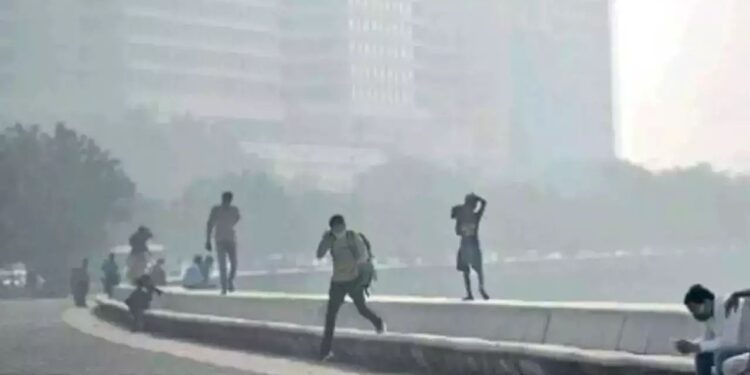The Bombay High Court on Thursday proposed phasing out diesel vehicles and wood/coal-fired kilns (Bhatti) used by bakeries as part of measures to address Mumbai’s deteriorating air quality.
A Bench comprising Chief Justice DK Upadhyaya and Justice GS Kulkarni highlighted the urgency of transitioning to cleaner alternatives like CNG and electric vehicles. “Not to copy Delhi, but can we consider permitting only CNG-driven vehicles and phasing out diesel engines?” the Bench suggested while hearing a suo motu Public Interest Litigation (PIL) concerning Mumbai’s air pollution, initiated in 2023.
Senior Advocate Darius Khambatta, acting as Amicus Curiae, pointed out that bhattis used by bakeries were the third-largest contributors to air pollution in the city, following construction sites and red-category industries. He called for immediate regulatory action to curb pollution from these sources, particularly construction activities, which he identified as the primary contributors.
The Court raised the possibility of eliminating traditional bhattis in bakeries, noting their significant role in air pollution.
“Bhattis are widely used by bakeries and small food outlets. With over 5 crore buns produced annually in Mumbai, these could be a major source of air pollution. Can the Corporation regulate or ban the use of wood or coal in such operations? Could new licenses require a shift to cleaner fuels?” the Bench asked.
Responding to these concerns, Senior Advocate Milind Sathe, representing the Brihanmumbai Municipal Corporation (BMC), stated that notices had already been issued to bakeries operating wood and coal-fired bhattis, giving them a year to transition to sustainable alternatives. Advocate General Birendra Saraf supported taking further action against violators of air pollution norms.
The Court also recommended the systematic phasing out of diesel vehicles and endorsed the idea of real-time pollution monitoring at construction sites. Senior Advocate Janak Dwarkadas, representing an intervenor, shared an example from Bangkok, where construction sites display real-time pollution data. The Court encouraged the Maharashtra Pollution Control Board (MPCB) to adopt a similar system to ensure greater accountability.
The Bench expressed its dissatisfaction with the State’s failure to meet prior directives regarding industrial pollution. Despite a March order requiring audits of all 7,268 red-category industries within six months, only 957 had been audited.
“This lack of progress is unacceptable. Why does action only happen after court intervention? Authorities must take responsibility for their roles. Everyone—advocates, children, citizens—is impacted by this,” the Court admonished.
The Court also rejected the BMC’s claim of being unable to address pollution from construction sites, emphasizing Mumbai’s geographical advantage of sea breezes, which should naturally help mitigate pollution levels.
“Development cannot always come at the cost of the environment. Mumbai has a locational advantage that Delhi lacks, yet pollution levels remain alarmingly high. When will effective measures be taken?” Chief Justice Upadhyaya questioned.
The hearing was adjourned, with the Court promising a detailed order in the future.

















